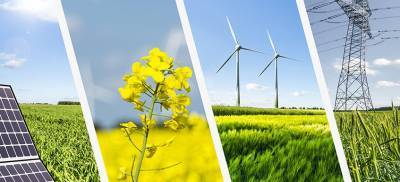MUMBAI, 23 January 2022: Sustainable development in agriculture refers to the practice of farming in a way that meets the needs of the present without compromising the ability of future generations to meet their own needs.
This includes using environmentally friendly farming practices, preserving natural resources, and promoting social and economic well-being for farming communities.
It often involves using a combination of traditional and modern farming methods to ensure food security, protect the environment, and support local communities.
Examples of sustainable development:
-
Conservation agriculture: This involves minimal soil disturbance, permanent soil cover, and diverse crop rotations to improve soil health and reduce erosion.
-
Integrated pest management: This approach uses a combination of natural predators, crop rotation, and other methods to control pests, rather than relying solely on chemical pesticides.
-
Agroforestry: This practice involves integrating trees and other plants into farming systems to improve soil health, protect against erosion, and provide additional income from non-timber products.
-
Organic farming: Organic farming systems rely on natural fertilizers, crop rotations, and other practices that don't use synthetic chemicals and genetically modified organisms, it also avoid the use of synthetic pesticides and fertilizers to promote biodiversity and reduce pollution.
-
Community supported agriculture (CSA): This model of farming involves a direct relationship between farmers and consumers, with consumers supporting local farmers by purchasing a share of their harvest in advance.
-
Water management: Implementing sustainable water management practices, such as rainwater harvesting, to conserve water and reduce the impact of drought on crop yields.
-
Renewable energy: Using renewable energy sources, such as solar or wind power, to power irrigation systems and other farm equipment, reducing dependency on fossil fuels.























